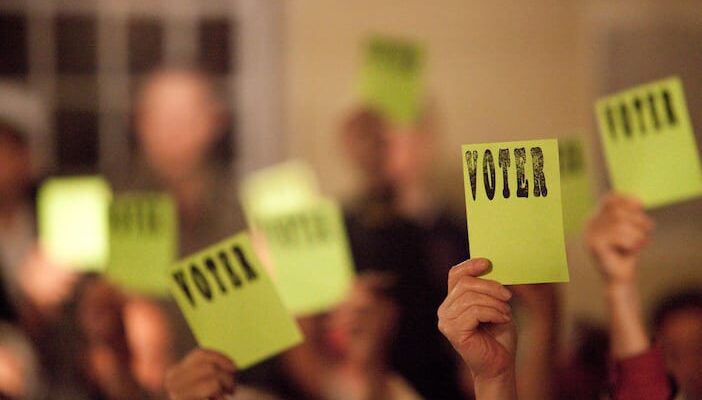Who is a member?
Our members are the local governments of Massachusetts and their elected and appointed leadership.

With the launch of adult-use marijuana commerce in Massachusetts on the horizon, there is great interest by media outlets in the role of cities and towns.
Local governments across the state have been acting quickly yet thoughtfully regarding the implications of this emerging industry. More than 100 town meetings this spring have considered zoning amendments to ensure that any commercial marijuana activity is conducted in the appropriate time and place.
“The legalization of commercial marijuana businesses has introduced a new industry to Massachusetts, and cities and towns are considering a wide range of issues in this process,” said MMA Executive Director Geoff Beckwith. “It is very common for communities to seek a temporary moratorium to give local citizens adequate time to consider these issues and make decisions in accordance with the new law and state regulations.”
According to data gathered by the MMA, as of July 1, 97 cities and towns will have temporary moratoriums in place, and all but two of these will expire by Dec. 31.
To help explain the local role in the emerging marijuana marketplace, the MMA has prepared the following questions and answers:
What actions can cities and towns take related to adult-use (i.e. “recreational”) marijuana?
Possible local actions include a moratorium, ban, zoning bylaws/ordinances, a retail cap, and adoption of a local-option sales tax.
What’s a moratorium?
A moratorium is a temporary measure intended to give cities and towns time to examine the final state laws and regulations on adult-use marijuana and to consider and implement any local measures.
Moratoriums in towns take the form of a zoning bylaw or ordinance, meaning they must be adopted by a two-thirds vote of the local legislative body (town meeting or city council), following a public hearing. In the 259 towns with an open town meeting form of government, all registered voters are able to vote on a moratorium. The Board of Selectmen in a town cannot adopt a moratorium.
For towns, a moratorium must be approved by the Attorney General’s Office before it can take effect.
A moratorium is not a ban. A moratorium must be for the purpose of planning and executing the plan. It must have an expiration date, and that date must be acceptable to the attorney general.
How long can a moratorium last?
The attorney general has said that a moratorium that expires during 2018 is reasonable. In two cases, the AG has approved a longer moratorium for towns that can “provide a rational basis” for needing more time.
When do the local moratoriums expire?
About 50 will have expired by July 1, and all but two will expire by the end of 2018.
How do communities implement a ban?
There are two methods by which a municipality may implement a ban on the retail sale, growth, manufacture, and/or testing of recreational marijuana products.
Note: The legislative body in towns is not the board of selectmen. Selectmen do not have the authority to implement a moratorium or a ban.
A ban may apply to all types of marijuana businesses or just selected types, such as cultivation.
What are cities and towns doing with zoning?
Municipalities may pass bylaws and ordinances governing the “time, place and manner” of the operation of marijuana businesses, provided such rules are not “unreasonably impracticable.”
For example, municipalities have been amending their zoning rules to specify the zone(s) within which a marijuana business may operate.
What is a cap on marijuana businesses?
Municipalities are allowed to cap the number of recreational marijuana retailers at 20 percent of the number of package store licenses within the city or town. If the figure is not a whole number, cities and towns must “round up” when calculating the retail cap.
A 20 percent cap may be implemented by the local legislative body (town meeting or city council).
There are two methods by which a municipality may implement a cap that falls below the 20 percent threshold: Municipalities where voters had defeated Question 4 may do so by a majority vote of the local legislative body. Municipalities where voters had approved Question 4 must also get approval from voters at a regular municipal election.
What about the local-option tax?
In order to derive revenue directly from the sale of marijuana products, a city or town must, by vote of the legislative body, adopt a local-option tax of up to 3 percent. So far, 66 cities and towns have done so, indicating that they intend to permit marijuana business activities. Once a city or town has adopted the tax, the clerk must immediately notify the Municipal Databank within the Division of Local Services.
At the local level, is the roll-out of adult-use marijuana different from previous new forms of commerce or activity?
No. Local governments take great care with decisions that affect local economic activity, and the democratic process for making these decisions takes time, as it must abide by town meeting or local election schedules, for example.
Where can I get more information?
Regarding Adult-Use: Cannabis Control Commission – www.mass-cannabis-control.com
Regarding Medical Marijuana: Department of Public Health – www.mass.gov/medical-use-of-marijuana-program